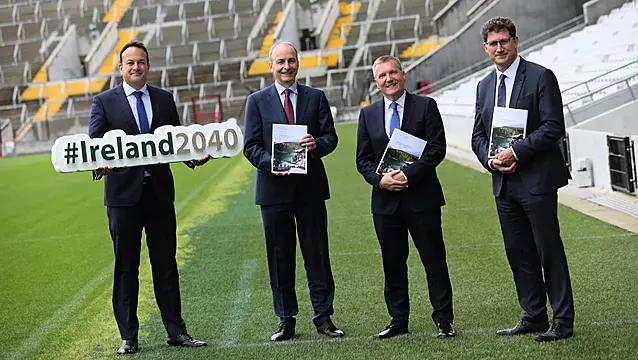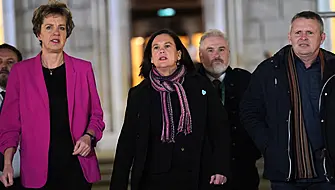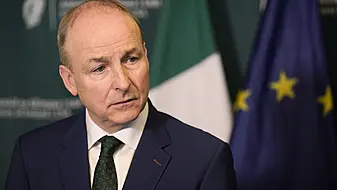Earlier this week, the Government published the National Development Plan, outlining where public funds will be spent on major infrastructure projects over the next number of years.
Investment in transport, connectivity and climate action were all on the agenda, however, questions have been raised as to whether the plan is realistic or achievable.
What is the National Development Plan?
The National Development Plan (NDP) is a plan of major public investment approved by the Government.
The NDP promises €165 billion in funding for a range of projects across the State over a 10-year period.
It has been described as the largest and “greenest” development plan ever delivered.
The NDP will play a significant role in addressing the opportunities and challenges over the coming years on issues including:
✅Covid-19
✅Brexit
✅Housing
✅Health
✅Climate Action
✅A population projected to grow by 1 million people between 2016 & 2040https://t.co/UcROkg9Skp pic.twitter.com/buNwgD1BzW— MerrionStreet.ie (@merrionstreet) October 4, 2021
The NDP covers major investment in projects involving roads, water treatment, public transport and housing.
However, many of the investments in the plan, such as BusConnects, are not new developments and have been in the works for a long time.
What big projects are included in the NDP?
Taoiseach Micheál Martin has described the new NDP as “unprecedented in scale” and one that will shape Ireland’s response to the housing crisis and the challenge of climate change.
As reported in The Irish Examiner, the NDP includes a €35 billion investment package for the country's transport system, with €12 billion for public transport, €6 billion for roads and €4 billion for walking and cycling infrastructure.
It also includes major investment in housing with more than 300,000 new homes expected by the end of 2030.
In the area of climate action, the NDP includes €1.5 billion for schemes to assist farmers in the decarbonisation of the agriculture sector and another €3 billion towards tackling fuel poverty and to provide a “just transition” away from fossil fuels.
The plan includes a €6 billion in investment by Irish Water by 2025 to improve water quality and conservation, while €2.7 billion is to be portioned off for high speed broadband across the country under the National Broadband Plan.
The full list of projects covered by the NDP can be found in the Government's 184-page document which gives an extensive overview of all the planned investments.
So, what's the controversy?
Many people, including opposition politicians and experts, believe the NDP is vague and lacks clear targets for projects.
One example being the long-awaited Metrolink project, which has a TBC (to be confirmed) date in the NDP, along with an estimated cost of over €1 billion.
Another flaw identified by critics is the inclusion of old projects which are being delivered late and running over cost.
Furthermore, it is not just opposition politicians who are unhappy with the plan. Fianna Fáil TD James O'Connor has threatened to resign the party whip after being “misled” over road projects in the NDP.
Mr O'Connor told local radio station C103’s Cork Today show that he was misled by senior Government officials over the Castlemartyr and Killeagh by-pass projects along with the Fota Road into Cobh.
Both of these projects were not included in the plan despite repeated reassurances from Government that they would be, according to Mr O'Connor.
When announcing the NDP, the Taoiseach said that if other projects were delayed then the money could be invested into projects such as the Castlemartyr bypass.
However, Mr O'Connor is now seeking meetings with both Mr Martin and the Minister for Transport, Eamon Ryan over the issue.







